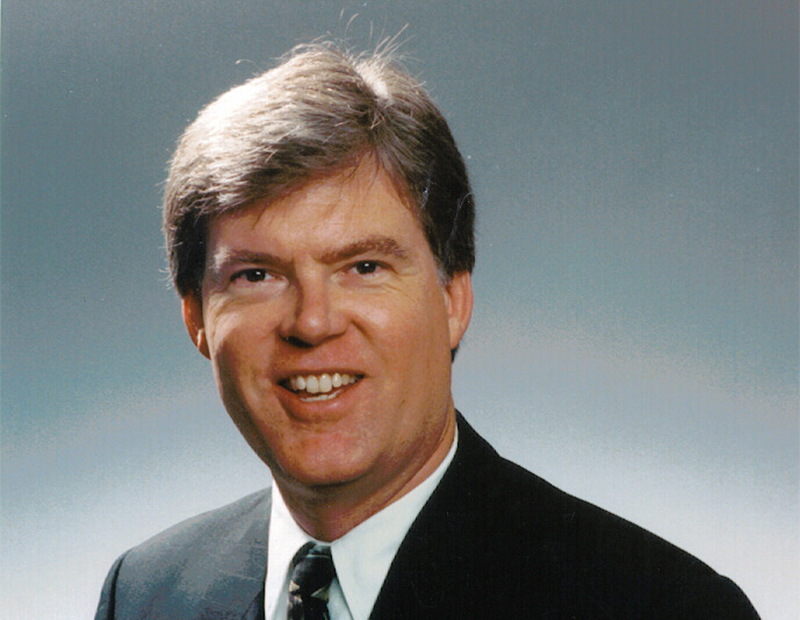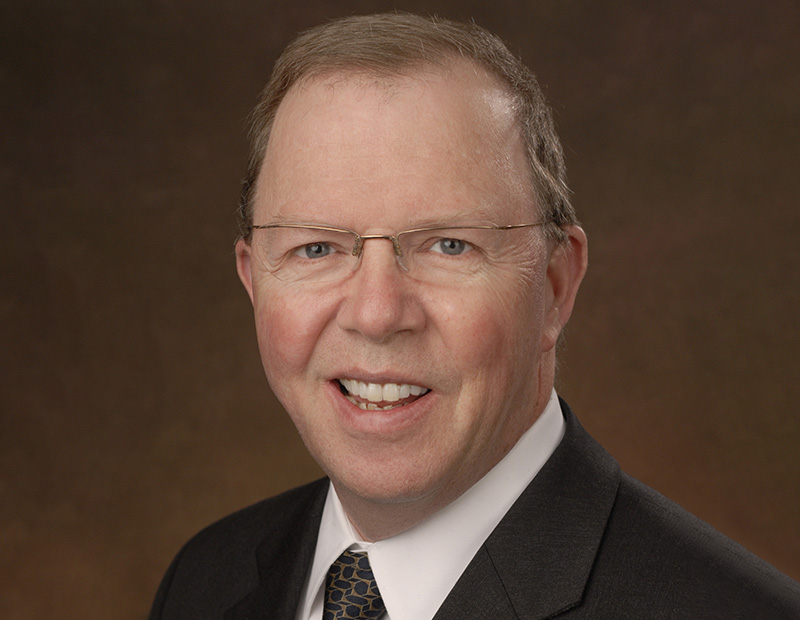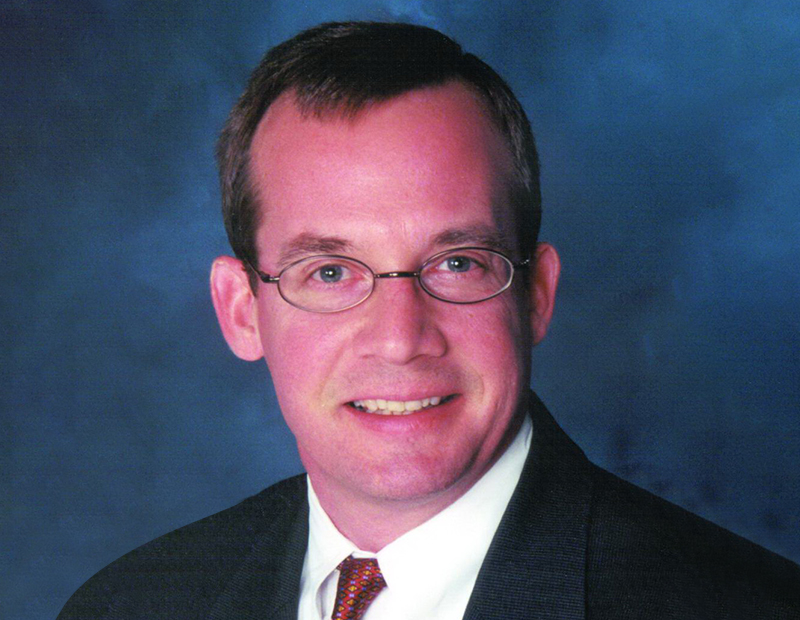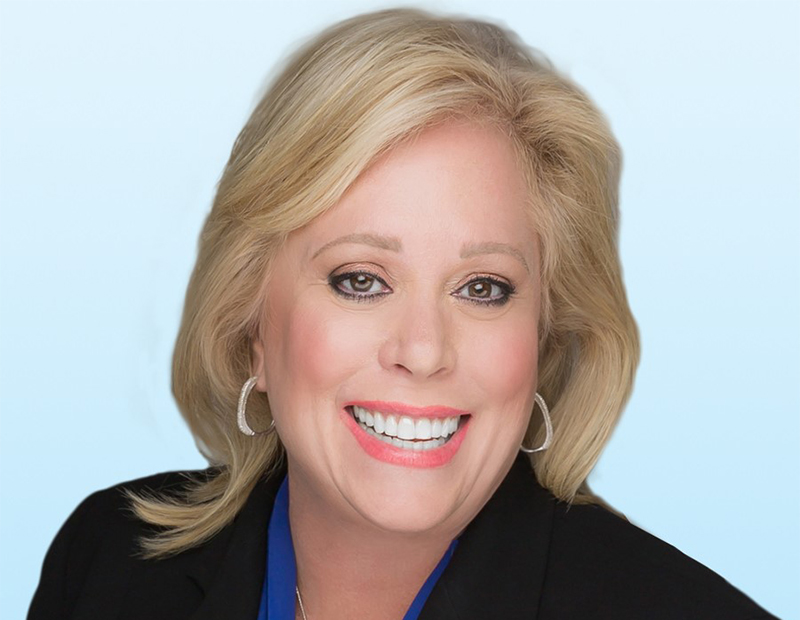CRE Predictions: Past & Future
In this final installment of a special series marking CPE’s 30th anniversary, industry leaders reflect on prophecies that came true, some that didn’t and what’s ahead.
By Alexandra Pacurar
Prognostications about commercial real estate emerge practically every day, yet the industry’s wisest players spot far-reaching trends long before the crowd. In this final installment of a special series marking CPE’s 30th anniversary, industry leaders reflect on prophecies that came true, some that didn’t and what’s ahead.
Lisa Picard, president & CEO of Equity Office
What have been the most significant predictions about the industry during your career, and which turned out to be true?
I’m no Ray Kurzweil, so look him up if you really want to know the future. He’s my guide. I’m a voracious student of cultural patterns and how they influence real estate. When I started to see Linux come on the scene and develop open source software with a stronger use in the late 90s, I though, “Wow, work is going to become highly collaborative because the ability to develop content and product will exceed any one person’s effort. We are going to share in a way like no other.” I never really imagined how big that sharing would become. Then, in 2014, I predicted that driverless cars would be here and some legislation would develop around them. I still think it’s fast (not 10 years away, but more like two or three).
What are your predictions for the next stage of the industry?
 We will all pursue space that does many things. In the office market, the controls and consumption will be akin to what happened to the music industry. We will see the “spotification” of real estate, where most will occupy space in a different way. Meaning: we all bought way too much inventory (like 12 songs on an LP). We rarely used all of it. The record labels controlled our consumption and what records got sold. Then we discovered an easier way. We didn’t need to own inventory, just to pay for access (like Spotify). Sure, some audiophiles will continue to own LPs and buy music in a physical form while a much larger and growing market seeks more flexible solutions where the product is curated for us without having to hunt for the perfect solution that also requires a long commitment.
We will all pursue space that does many things. In the office market, the controls and consumption will be akin to what happened to the music industry. We will see the “spotification” of real estate, where most will occupy space in a different way. Meaning: we all bought way too much inventory (like 12 songs on an LP). We rarely used all of it. The record labels controlled our consumption and what records got sold. Then we discovered an easier way. We didn’t need to own inventory, just to pay for access (like Spotify). Sure, some audiophiles will continue to own LPs and buy music in a physical form while a much larger and growing market seeks more flexible solutions where the product is curated for us without having to hunt for the perfect solution that also requires a long commitment.
Every industry is realizing new consumer patterns of consumption and the office market is not immune to these forces. Every business, organization and individual is seeking more flexible and dynamic ways to work where there is community, creativity and productivity. The office market will observe new valuation models that start to look more like apartments.
Barry Beitler, president, Beitler Commercial Realty Services; principal & chairman of the board of directors, TCN Worldwide

Barry Beitler, president, Beitler Commercial Realty Services; principal & chairman of the board of directors, TCN Worldwide
What have been the most significant predictions about the industry during your career and which turned out to be true?
The funny thing about real estate predictions is that, eventually, they all come true. It is such a cyclical business, full of ups and downs. Its stability and instability periods upwards and downwards have made almost every prediction ever made come true. Those of us who have been around for years have seen the heights and depths of interest rates, changes in tax laws, lender tightening/loosening on loans, cap rates and the like.
What are your predictions for the next stage of the industry?
I believe lenders will continue to take longer to fund loans and be more cautious in their lending practices in the years ahead. It appears to me that 2018 will be very similar to 2017. However, so much depends on the stability of the national and international economy and how it will affect pricing, interest rates and lending. One major event could change everything.
Ken McCarthy, principal economist, Cushman & Wakefield
What have been the most significant predictions about the industry during your career, and which turned out to be true?
One of the biggest real estate predictions during my career occurred in the 1990s, when the internet boom began. Once people realized that they could share work in real time and communicate consistently using the internet, economists and commercial real estate professionals predicted the end of the office market. They believed everyone would work from home and that offices would become obsolete, creating overwhelming vacancy rates in office buildings nationally. Evidently, this prediction never came to fruition as there are more professionals working in offices now than ever before. Interestingly, we did see a shift in office trends with densification and more open space becoming more popular, but in no way did the office market plummet.
What are your predictions for the next stage of the industry?
 One prediction I have for the next stage of the industry is that investment sales are going to rise again. Though we’ve seen a decline over 2016 and 2017, I think there is more confidence amongst investors that another recession is not on the horizon and, therefore, they will be inspired to invest in commercial real estate. Commercial real estate is still an attractive asset class as interest rates are down and yields remain low. These factors will drive investment sales in 2018.
One prediction I have for the next stage of the industry is that investment sales are going to rise again. Though we’ve seen a decline over 2016 and 2017, I think there is more confidence amongst investors that another recession is not on the horizon and, therefore, they will be inspired to invest in commercial real estate. Commercial real estate is still an attractive asset class as interest rates are down and yields remain low. These factors will drive investment sales in 2018.
Another prediction I have for the next stage of the industry is that the Sun Belt will come back strong throughout 2018. Orlando, Phoenix and Atlanta markets are hot and the talent in those markets is strong, so I predict we will see growth in those markets.
Lastly, month-to-month, the economy has added jobs for a record 85 consecutive months, which is almost double the previous record in the late 1980s. I predict that this long streak of month-to-month job growth will come to an end sometime in 2018.
Ross Ford, president & CEO, TCN Worldwide
What have been the most significant predictions about the industry during your career, and which turned out to be true?
Our industry, like most, has had no lack of prognosticators and their projections. Some have certainly come true or are in the process, such as technology will revolutionize the industry. That is certainly true in almost all facets—from project design, financing, construction, etc. In the brokerage field—where our member firms concentrate their efforts—we have experienced a fundamental shift for the first time in generations.
My brother Bruce Ford and I are fourth-generation in the real estate field. For the first three generations, the brokerage business was in most ways unchanged—brokers had the market knowledge (available spaces/properties, market rents/costs, general lease/acquisition terms, etc.) all to themselves. The clients “needed” them to access this information and achieve the best possible outcome.
Technology and the access to information has changed all of that. Now, most of the market information can be attained by anyone and the broker must earn their fee in new ways—by becoming a business consultant to their clients and proactively using the market information in a manner that serves the client beyond just occupying space or acquiring assets.
Other predictions have proved less accurate. Since I began my career, there have been persistent projections that the local or regional CRE brokerage firm would be forced out of business or relegated to an insignificant role. That has never proved to be the case at all. First there was the theory that the largest firms would offer a breadth of services and geographic reach that would entice the customer base to gravitate to them. But the client base was too varied and the needs too specific to be swayed, by such a “one size fits all” approach. Then the prediction was that the cost of keeping up with developments in the technological space would force the lower-capitalized local and regional firms to be uncompetitive.
In fact, the rapid pace of technological development lowered the cost of doing business in many respects and truly lowered the barriers to entry in our industry. It is easier now to start a brokerage firm, have access to all of the necessary market information, acquire the presentation and marketing tools to compete at any level, and even offer ancillary services through a host of partners than it has ever been. At its core, the reason we have such a varied business capable of supporting a wide variety of service providers is that the client base is similarly diverse. The fastest-growing segment of the business community is small to mid-sized employers, and these are particularly attuned to working with brokerage firms that are “just like them”.
Finally, there were many projections when I first started that the easy access to more information in our industry (and by extension, smarter decisions in terms of broad development strategies, funding decisions, rental projections and occupancy, etc.) would wring out of the industry the cycles that had existed for so long. Nothing could be further from the truth, so far. Despite all of the advancements in regard to available data and market intelligence, the broader swings in the economy on a local, regional, national and now international basis still create wide cyclical changes in our industry. Occasionally, they are sharp and profound and sometimes gentle, but they exist nevertheless.
What are your predictions for the next stage of the industry?
 From the examples above, it is clear that many projections prove inaccurate. That said, here are a few thoughts:
From the examples above, it is clear that many projections prove inaccurate. That said, here are a few thoughts:
The tool set of the brokerage professional will have to continue to change and focus on a growing role as a “business counselor” as it relates to physical space (occupied or for investment) to remain a viable profession. Our compensation model will come under fire and we will need to demonstrate a value proposition distinct from access to market knowledge and focused instead on how we add value to the client by turning information into sound guidance (a step beyond knowledge).
There will be a growing bifurcation of the industry—large service providers working with large clients and small to mid-sized providers working with similar clients. There will always be exceptions, but one of the keys to success for the future is to understand your clients and focus your most valuable resource—your time—on the clients most likely to value what you are offering. The firms that will truly excel will be the ones that can cross this divide most effectively.
There will be increasing specialization in our industry in all sectors. The ability for different providers with different skill sets to partner on an as-needed basis will open the door for very focused niche companies to thrive by working in ad hoc partnerships to serve clients.
The door has been opened to market information/data in a public forum. This will continue to progress, and the data will become a commodity. Ultimately, its price will decrease as multiple sources become available. The tools that help you to use the data will have value, but not the data itself.
Robert Brown, managing director, Perkins+Will
What have been the most significant predictions about the industry during your career, and which turned out to be true?
I have been through five recessions, and I would say that none was predicted, and each one of them shocked the real estate industry. Also, the way we work has continued to change since the beginning of time. The visionaries have predicted this and it has absolutely come true to the benefit of our industry and the economy. Technology has had the most significant impact on the way we work, from computers and phones to virtual reality and the millions of applications that we use daily.
What are your predictions for the next stage of the industry?
 I truly believe we are at the precipice of change in the design, construction and delivery of projects. We will be working much more like the auto industry, where firms conceive design prototype and manufacture parts offsite, then assemble them on site in half the time. We will take the furniture catalogue to a new height where complete homes, offices and environments are viewed in a virtual way in your home, then delivered to you for installation. Cities will continue to evolve into 24/7 experiences with live-work-play in all areas, surrounded by dynamic spaces for entertainment relaxation and virtual and real spaces.
I truly believe we are at the precipice of change in the design, construction and delivery of projects. We will be working much more like the auto industry, where firms conceive design prototype and manufacture parts offsite, then assemble them on site in half the time. We will take the furniture catalogue to a new height where complete homes, offices and environments are viewed in a virtual way in your home, then delivered to you for installation. Cities will continue to evolve into 24/7 experiences with live-work-play in all areas, surrounded by dynamic spaces for entertainment relaxation and virtual and real spaces.
Katy Welsh, senior vice president of retail leasing, Colliers International
What have been the most significant predictions about the industry during your career, and which turned out to be true?
Who ever thought the Apple store would generate the most traffic in the mall? The recent prediction of the internet replacing the physical store—when it’s actually the physical store increasing internet sales. Who would ever think that Amazon would be opening brick-and-mortar stores? How about the end of the shopping center business when the tax laws changed in limited partnerships, but then REITs became popular? Real estate is always reinventing itself.
What are your predictions for the next stage of the industry?
Continued revitalization! It’s a very exciting time in our industry as we reinvent the mall by adding residential and co-working spaces, creating people-oriented shopping experiences with entertainment and places to gather, and commingling the internet with the physical store, delivery services, personal shoppers with curbside pick-up, entertainment, etc. The future is open to many possibilities.
Images courtesy of Equity Office, Cushman & Wakefield, TCN Worldwide, Perkins+Will, Colliers International
Originally appearing in the December 2017 issue of CPE.












You must be logged in to post a comment.